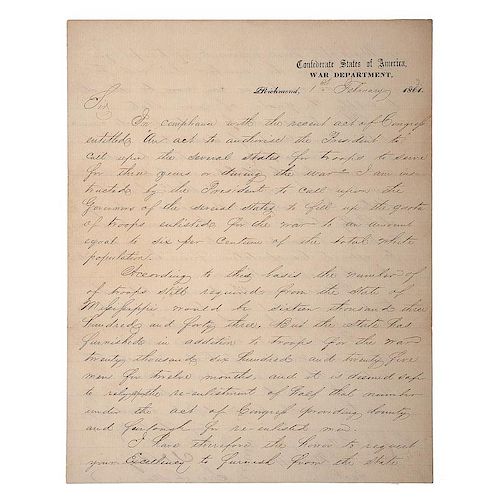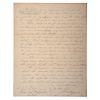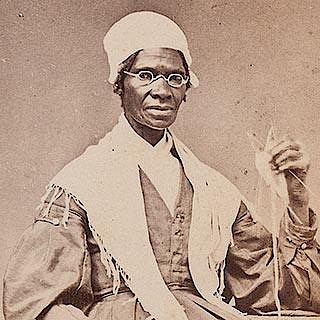Judah P. Benjamin LS on CSA War Department Letterhead, 1862
About Seller
6270 Este Ave.
Cincinnati , OH 45232
United States
With offices in Cincinnati, Cleveland and Denver, Cowan’s holds over 40 auctions each year, with annual sales exceeding $16M. We reach buyers around the globe, and take pride in our reputation for integrity, customer service and great results. A full-service house, Cowan’s Auctions specializes in Am...Read more
Two ways to bid:
- Leave a max absentee bid and the platform will bid on your behalf up to your maximum bid during the live auction.
- Bid live during the auction and your bids will be submitted real-time to the auctioneer.
Bid Increments
| Price | Bid Increment |
|---|---|
| $0 | $25 |
| $500 | $50 |
| $1,000 | $100 |
| $2,000 | $250 |
| $5,000 | $500 |
| $10,000 | $1,000 |
| $20,000 | $2,500 |
| $50,000 | $5,000 |
| $100,000 | $10,000 |
About Auction
Jun 9, 2017 - Jun 10, 2017
Cowan's Auctions dawnie@cowans.com
- Lot Description
Benjamin, Judah P. (1811-1884). First Jewish US Senator (LA, 1853-61), 1st CSA Attorney General (1861), 2nd CSA Secretary of War. (1861-62), 3rd CSA Secretary of State (1862-65). LS, Richmond [VA], February 1, 1861 (year pre-printed, with a "2" in pencil above it), 2pp, on War Department letterhead. Confederate Secretary of War Judah P. Benjamin writes to J.J. [John Jones] Pettus, Governor of Mississippi, requesting the state's quota of troops, per the Confederate Congress.
In compliance with the recent act of Congress entitled "An act to authorise the President to call upon the Several States for troops to serve for three years or during the war." I am instructed by the President to call upon the Governors of the several states to fill up the quota of troops enlisted for the war to an amount equal to six per centum of the total white population.
According to this basis the number of troops still required from the state of Mississippi would be sixteen thousand three hundred and forty three.
He then subtracts the number of new one-year recruits, and estimates that half will re-enlist for the additional years.
I have therefore the honor to request your Excellency to furnish ... seven regiments of troops for the war....
These troops will be mustered into service at convenient camps of instruction which you are respectfully requested to select, and will there be clothed, supplied and armed at the expense of the Confederate States. Each soldier will receive a bounty of fifty dollars when the regiment or company is mustered into service and will be allowed transportation from his home to the place of rendezvous.
It is earnestly desired that the troops now called for be ready to take the field by the 15th March ...
He concludes by pointing out that if the number of men who re-enlist varies from the estimate, this requisition will be modified accordingly.
The expectation (at least the public face) was that the war would be over by Christmas. When it wasn't, both sides found it necessary to gear up for the beginning of the late spring/early summer campaigns. At the time, this February call-up would barely give them time to enlist, reach their training camps, receive supplies and be ready for the field. Many troops - North and South - went into the field only partially supplied.
Within just two short months, in April 1862, the first Conscription Act was passed by the Confederate Congress making all men between the ages of 18 and 35 liable for a three-year term of service. All one-year recruits were extended to three years. Certain essential occupations were exempted (i.e. railroad and river workers, druggists, miners, etc.). The act was amended many times. The provision that caused much resentment exempted men who owned 20 or more slaves, clearly protecting rich over poor white men.
The Confederacy still ran short of manpower. By the end of 1863, they abolished the practice of hiring a substitute (if one had the money to do so; this caused friction in the North, also); the age of service was extended in February 1864 (down to 17 and up to 50 years). And still they could not match the greater availability of northern populations.
As the war dragged on, desertion rates increased. Confederate officers noted that the men most likely to desert were the poorest. When the men were primary support for their families, the family suffered; of course, that suffering increased the longer the men were in service. It was not proper Southern gentlemanly behavior to let one's family suffer. By September 1864, even President Davis had to admit that two-thirds of soldiers were absent, most without leave.
Old folds, very minor toning at top edge, otherwise excellent.Condition
- Shipping Info
-
SHIPPING. At the request of the buyer, Cowan's will authorize the shipment of purchased items. Shipments usually occur within two weeks after payment has been received. Shipment is generally made via UPS Ground service. Unless buyer gives special instructions, the shipping method shall be at the sole discretion of Cowan's Auctions, Inc.. Cowan's is in no way responsible for the acts or omissions of independent handlers, packers or shippers of purchased items or for any loss, damage or delay from the packing or shipping of any property.
-
- Buyer's Premium



 EUR
EUR CAD
CAD AUD
AUD GBP
GBP MXN
MXN HKD
HKD CNY
CNY MYR
MYR SEK
SEK SGD
SGD CHF
CHF THB
THB












